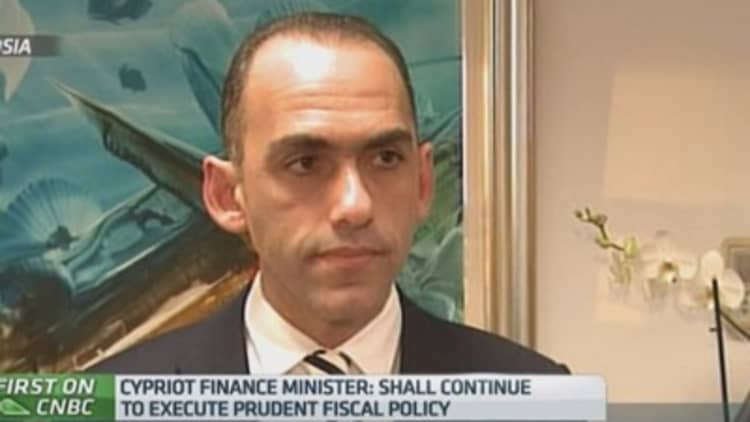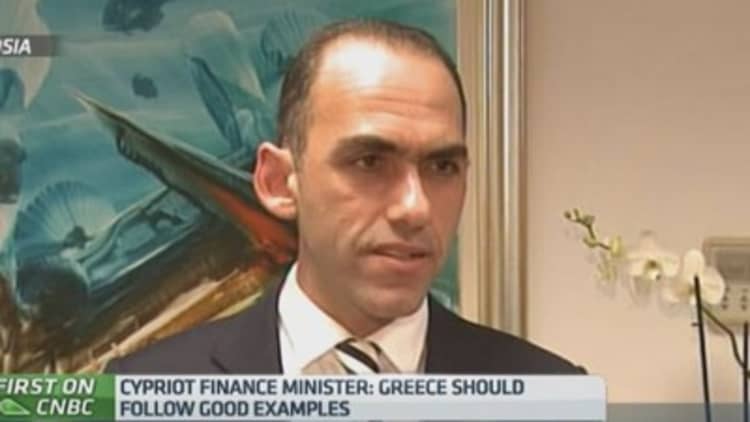
The prospect of the European Central Bank's 1-trillion euro ($1.1 trillion) bond-buying program has cheered global markets, but the finance minister of Cyprus told CNBC it must not stop efforts to reform.
Harris Georgiades, Cyprus' finance minister, said that while he was a strong supporter of the forthcoming quantitative easing (QE) program, reforms could not be put on the back-burner. ECB President Mario Draghi revealed on Thursday that the controversial program would start on March 9.
"I'm a strong supporter of this new policy of the ECB and I do believe it will help the euro zone as a whole and, of course, Cyprus, and the benefits will be multi-dimensional," Georgiades told CNBC Wednesday.
"It will be a stimulus for economic activity and it will facilitate the re-entry of countries like Cyprus to the international capital markets. So it makes our double objective of economic recovery and growth - and also a return to capital markets - easier."
Read MoreEuro at 11-year lows– what next?
However, he stressed that the program should be seen in conjunction with the "difficult but necessary job" of structural reform in some of the euro zone's struggling economies.
"There is a dilemma regarding the QE policy and whether it will be a disincentive to the continuation of economic reforms, structural changes and fiscal consolidation," Georgiades said, speaking to CNBC in Nicosia in Cyprus where the central bank is meeting.
"But my answer is that we will continue to execute prudent fiscal policy (and) our agenda of structural reform. But the ECB should essentially lend a hand to this effort."
Currently, the government bonds of Cyprus and Greece – both recipients of financial bailouts - do not qualify for the ECB's program until the economies implement key reforms. On Wednesday, Cypriot President Nicos Anastasiades met with ECB President Mario Draghi to push the case for Cyprus to take part in the program, however.

There are hopes that the program will help combat growth-sapping deflation in the euro zone. The region was hit with falling prices for the first time since 2009 in December, although the latest data show that deflation eased in the region in February, with prices falling 0.3 percent year-on-year, better than the previous month's 0.6 percent slide.
Read MoreWeak euro boosts euro zone businesses
Georgiades said he believed ECB QE would push inflation in the "right direction," and that it was right for the ECB to use its "full arsenal to fight off inflation and encourage economic activity."
Draghi updated both the ECB's growth and inflation forecasts on Thursday.
The inflation projection for 2015 was revised downwards, mainly reflecting falling oil prices, to 0 percent. In contrast, the inflation projection for 2016 was revised slightly upwards to 1.5 percent, reflecting the expected impact of policy measures such as the upcoming asset-purchasing program.
As expected, the ECB upgraded its economic growth forecasts for both 2015 and 2016, to 1.5 percent and 1.9 percent respectively.
-By CNBC's Holly Ellyatt, with contribution from Katy Barnato.


